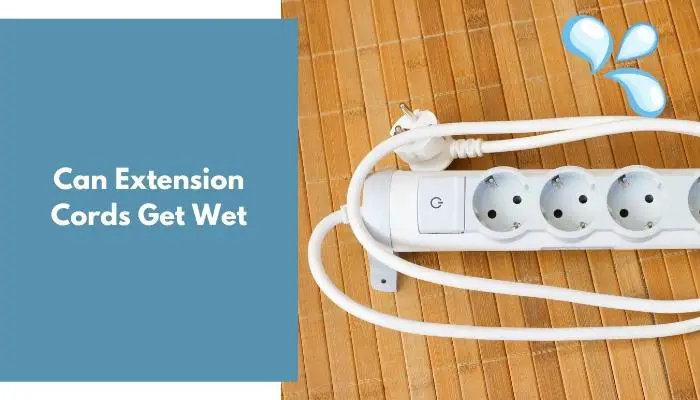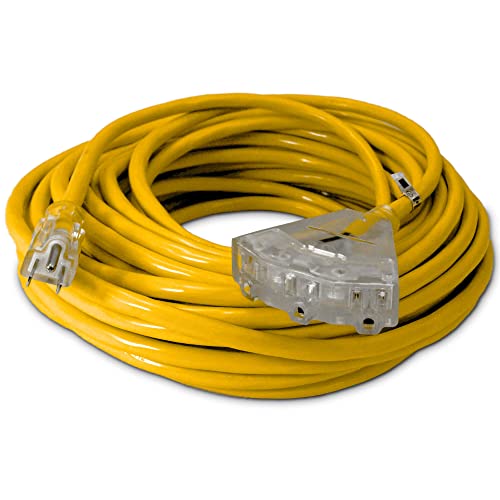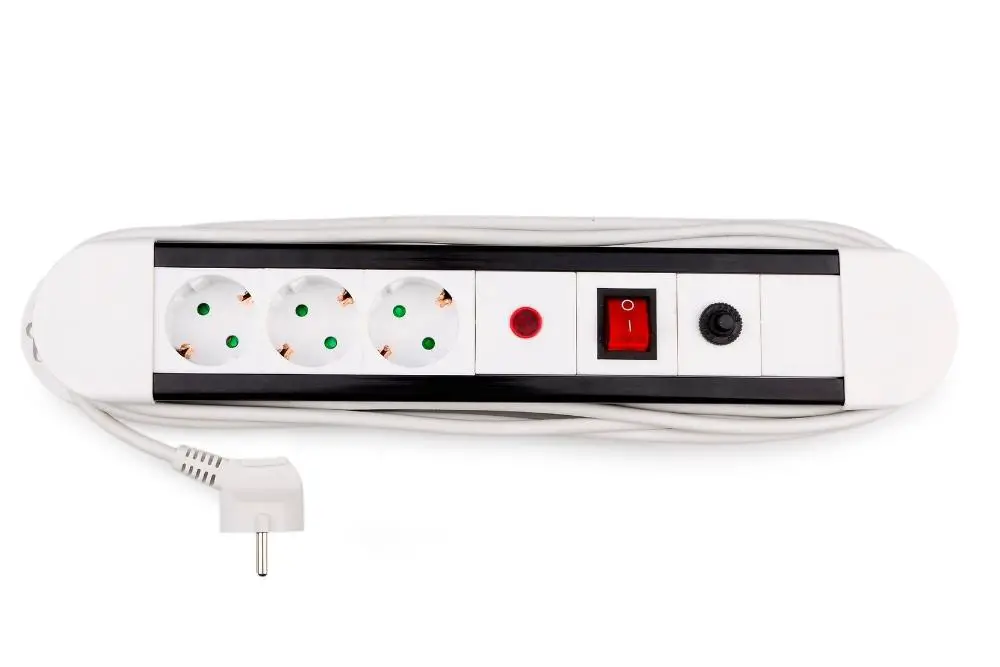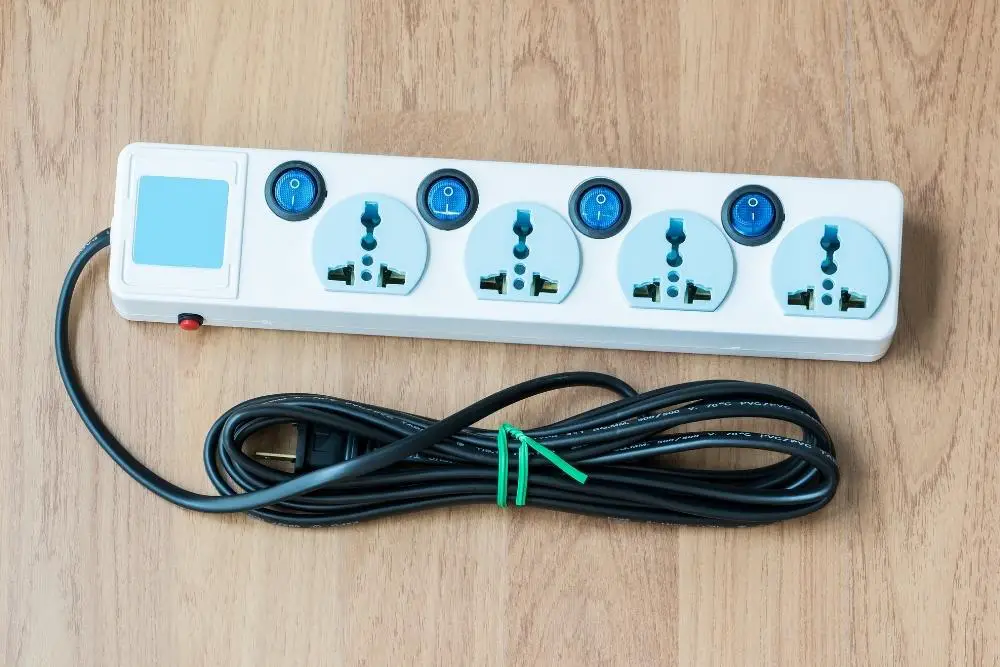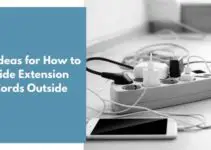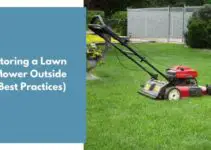Disclaimer: This is not meant to be expert advice. Please do your own research. We are not responsible for any damage to property or harm to any persons. Please be cautious and stay safe.
It’s essential every day to keep in mind the importance of extension cord safety. Although many people are aware of the valuable features of extension cords, they are not always aware of the risks.
Extension cords can get wet, but if they are not rated for outdoor use, they could pose a safety risk. If you accidentally left the cords in the rain or have splashed water on them, you can still use them afterward, but if water got into the socket or the plug becomes wet, things become more complicated.
This post will provide the necessary information you need when you have wet extension cords at home. We recommend this 25-foot outdoor waterproof extension cord for general outdoor purposes.
Contents
What Happens if Extension Cords Get Wet?
When cleaning up after a spill, it’s essential to switch off the electricity immediately. It is because electrocution can occur when electricity and water meet.
If the power goes out, the metals and minerals in the liquid will not conduct. They can’t damage the circuit’s components. One of the main reasons is that there isn’t much damage in a standard extension cord. A simple set of wires is all it takes to prevent a spill on a device.
Most extension cords nowadays are less robust. However, they still come with a level of waterproofing to protect against water damage.
Since you can use extension cords for a long time, they have to be built with a certain tolerance to prevent them from getting damaged.
What Type of Extension Cord Should You Use for Outdoors?
Outdoor extension cords are great for outdoor lights, but they can become dangerous if they get damaged. You can expose them to extreme weather conditions, such as rain, snow, and heat.
Prices pulled from the Amazon Product Advertising API on:
Product prices and availability are accurate as of the date/time indicated and are subject to change. Any price and availability information displayed on [relevant Amazon Site(s), as applicable] at the time of purchase will apply to the purchase of this product.
Before using extension cords, it is important to thoroughly inspect them to make sure that they are not damaged. It can induce an electric shock or fire.
Ensure that the amount of extension cord you use doesn’t exceed the number of connections you make outdoors. Although some extension cords are for outdoor use, you should still check the labels to ensure safety. The outer surface of the cable should indicate its intended use.
An extension cord suitable for outdoor use should have a minimum of 300 volts of insulation. It should also have parallel wiring usually used indoors.
This article will give you an idea of what kinds of things you can use with extension cords outside and inside. For instance, the thread on the left has the letters SJT. It is for general use.
Can You Use Extension Cords in the Rain?
You can use an extension cord outside for outdoor use as long as indicated. It will provide superior insulation and protection from harsh weather conditions.
There are two kinds of extension cords: outdoor and indoor. The former is light and flexible, while the latter is more susceptible to moisture.
Unfortunately, using an extension cord indoors will damage its insulation and expose you to electric shocks and fires. If the cord is in good condition and rated for outdoor use, it can still endure the elements. However, keep the plug out of the rain.
- Water, weather and abrasion resistant & flame retardant
Prices pulled from the Amazon Product Advertising API on:
Product prices and availability are accurate as of the date/time indicated and are subject to change. Any price and availability information displayed on [relevant Amazon Site(s), as applicable] at the time of purchase will apply to the purchase of this product.
What Happens if an Extension Cord Is Submerged in Water?
If your extension cord gets submerged in water, turn off the power immediately. It’s doubtful that the water will reach the plug end of the line.
If you’re in an area with water, keep away from the cold and moisture. The safest way to avoid electrocution is to switch to the mains. After you remove the connection, turn off the power completely. It’s improbable that the water will still reach the plug end.
Put on rubber gloves before touching the wall socket or extension cord because you can’t do this with bare hands. It will protect you from getting shocked.
The more water inside the cord, the more damage it can cause. After severing the connection, please turn off the power completely and thoroughly dry the extension cord to give it the best chance of recovery.
Although it may look bad, the damage should be minimal if the cord is unplugged when submerged. There’s a risk of electrocution from the minerals in the cord, but it’s still possible to maintain its functionality by thoroughly cleaning it.
Safety Tips for Using Outdoor Extension Cords
If exposed to water, extension cords with a high-quality rating should perform well. This feature prevents the line from getting wet while plugging into a socket. It also prevents people from getting inside the plug socket while it’s turned on.
An outdoor extension cord is protected from water by insulating materials that extend along its length.
If an extension cord gets wet while plugged in, turn off the power immediately. Switch off the electricity in your home’s mains before plugging in an extension cord. Then, disconnect the device once you sever the connection.
Before connecting an extension cord to a socket, make sure that you wear rubber gloves. After cleaning the line thoroughly, dry it outside and inside to give it the best chance of recovering. However, if it gets wet while plugged in, it could break.
When you see something out of the ordinary when it comes into contact with an extension cord, take immediate action. After discarding the cord, please do not attempt to reuse it. It will indicate that something inside the cable is broken and unfixable.
FAQs
Are Extension Cords Safe in the Rain?
Extension cords are safe in the rain when there is an indication that they are for outdoor use. If you’re planning on using extension cords in the rain, make sure they have a wet rating.
These products are made from high-quality materials and have superior insulation. They can prevent electrical connections from getting damaged while using them outside.
If the cord has a wet rating, it should be able to be used outdoors safely. Even though a thread has a damp rating, you still need to be careful with its plug end. The central socket and the prongs can get damaged if it gets wet.
- Ideal for outdoor lighting and other devices requiring extended reach
- One piece molded plug construction provides extra durability
- Double insulated 25 feet cord gives the extension cord a long life
- 13 Amps, 125volts, 1625 watts; Total power outlets: 3
- UL listed for saf
Prices pulled from the Amazon Product Advertising API on:
Product prices and availability are accurate as of the date/time indicated and are subject to change. Any price and availability information displayed on [relevant Amazon Site(s), as applicable] at the time of purchase will apply to the purchase of this product.
What to Do if Extension Cord Gets Wet?
If your extension cord gets wet, don’t panic. Take a few moments to evaluate the problem and resolve if it’s safe to touch the socket.
When there’s no water around the socket, turn off the electricity immediately. If you’re not sure, you can also temporarily switch off the electricity at the mains. However, if you’re still unsure, you can always wear rubber gloves to prevent shocks.
Follow these steps to dry the extension cord thoroughly. To clean its outer surface, use a towel or cloth to wipe it down. If the water still gets into the sockets, use a hairdryer to remove as much moisture as possible.
Are Extension Cords Safe?
According to statistics, extension cords are hazardous. They kill over a hundred people a year and injure thousands of others. Bundles of wires are inside the lines that allow current to flow through them.
An extension cord that’s too hot can cause it to overheat and melt the plastic components of the device, which could ignite and cause various fires.
How to Protect Outdoor Extension Cord From Rain?
If you have a Ground Fault Circuit Interrupter (GFCI) outlet but have not yet installed one on the exterior of your home, use a GFCI adapter with an outdoor extension cord.
A circuit breaker is a device that automatically turns off when it senses that power is flowing through the water. It can also shut off if it feels that a person or object is in danger of getting electrocuted.
Conclusion
You can get extensions cords wet, but it is not a safe material to get near. You need to remove the main plug from the socket right away when this happens. This method will ensure that you will not get electrocuted when you dry out the cord with a towel and will not cause a house fire.

